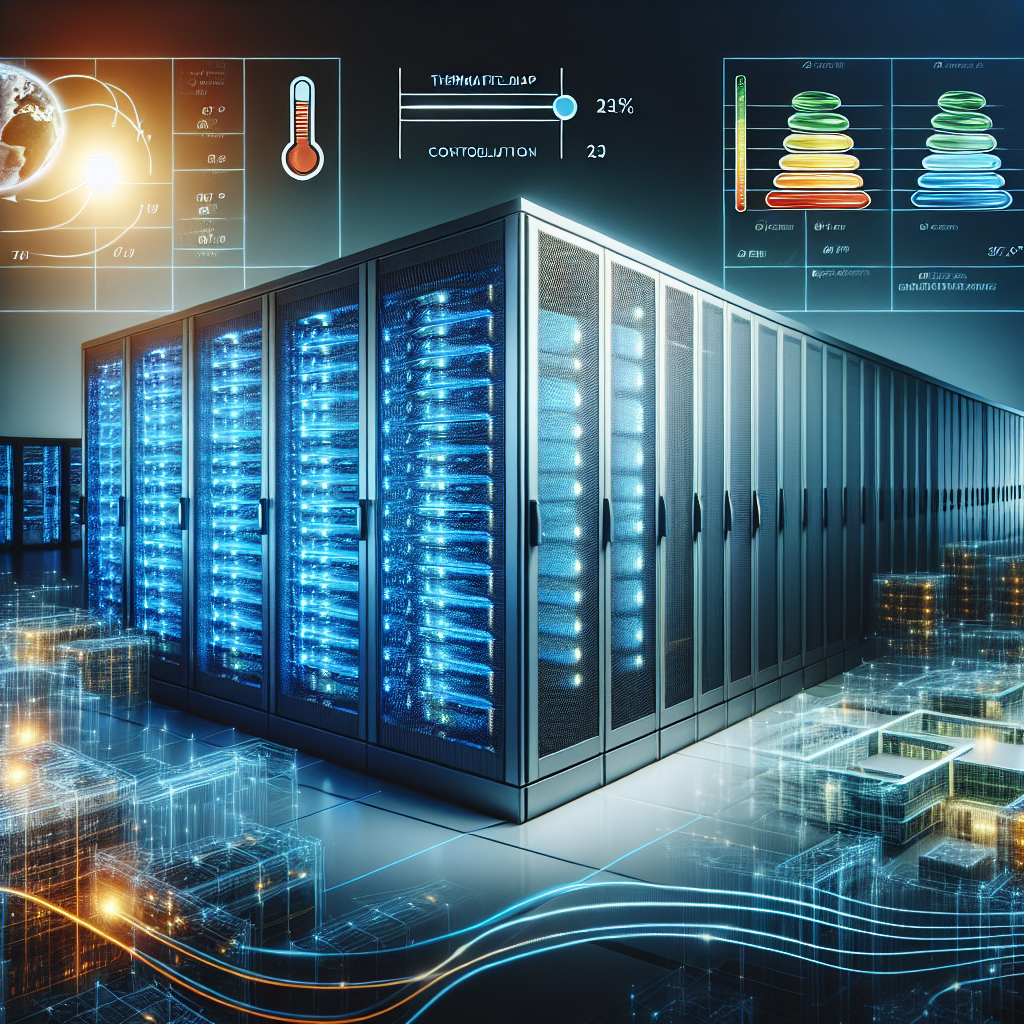Data centers play a critical role in today’s digital economy, supporting the storage and processing of vast amounts of data that power everything from social media platforms to e-commerce websites. However, with the increasing demand for data storage and processing, data centers are also becoming significant energy consumers, accounting for a significant portion of global energy consumption.
In response to this growing concern, data center operators are increasingly focusing on improving energy efficiency in their facilities to reduce energy consumption, lower operating costs, and minimize their environmental impact. Here are some key trends in data center energy efficiency that are shaping the industry:
1. Modular and scalable design: One of the key trends in data center energy efficiency is the adoption of modular and scalable design principles. By building data centers in modular units that can be easily expanded or upgraded as needed, operators can minimize energy waste by scaling their infrastructure to match their actual workload requirements. This approach also allows for more efficient use of resources, as operators can add capacity only when needed, rather than building out large, underutilized facilities.
2. Use of renewable energy sources: Another important trend in data center energy efficiency is the increasing use of renewable energy sources such as solar, wind, and hydroelectric power. By harnessing clean, renewable energy sources, data center operators can reduce their reliance on fossil fuels and lower their carbon footprint. Many data center operators are also investing in on-site renewable energy generation, such as solar panels and wind turbines, to power their facilities and reduce their energy costs.
3. Advanced cooling technologies: Cooling is one of the most energy-intensive aspects of data center operation, as servers generate a significant amount of heat that must be dissipated to maintain optimal operating temperatures. To improve energy efficiency, data center operators are adopting advanced cooling technologies such as free cooling, liquid cooling, and hot aisle/cold aisle containment systems. These technologies help to reduce energy consumption by minimizing the need for traditional air conditioning systems and improving airflow management within the data center.
4. Energy-efficient hardware: In addition to improving the infrastructure and cooling systems, data center operators are also focusing on using energy-efficient hardware to reduce energy consumption. This includes deploying servers, storage devices, and networking equipment that are designed to operate more efficiently and consume less power. Many hardware manufacturers are also developing energy-efficient technologies, such as solid-state drives and energy-efficient processors, to help data center operators reduce their energy costs and improve overall efficiency.
5. Data center optimization and monitoring: Finally, data center operators are increasingly turning to data center optimization and monitoring tools to help them identify and address energy inefficiencies in their facilities. By using advanced monitoring and management software, operators can track energy consumption, identify areas of inefficiency, and optimize their infrastructure for better performance and energy efficiency. These tools also enable operators to implement real-time monitoring and control of their data center environment, allowing them to make immediate adjustments to improve efficiency and reduce energy consumption.
In conclusion, data center energy efficiency is a critical issue for the industry, as operators strive to reduce energy consumption, lower costs, and minimize their environmental impact. By adopting modular and scalable design principles, using renewable energy sources, deploying advanced cooling technologies, using energy-efficient hardware, and implementing data center optimization and monitoring tools, data center operators can improve their energy efficiency and sustainability. As the demand for data storage and processing continues to grow, these trends will play an increasingly important role in shaping the future of data center energy efficiency.


Leave a Reply